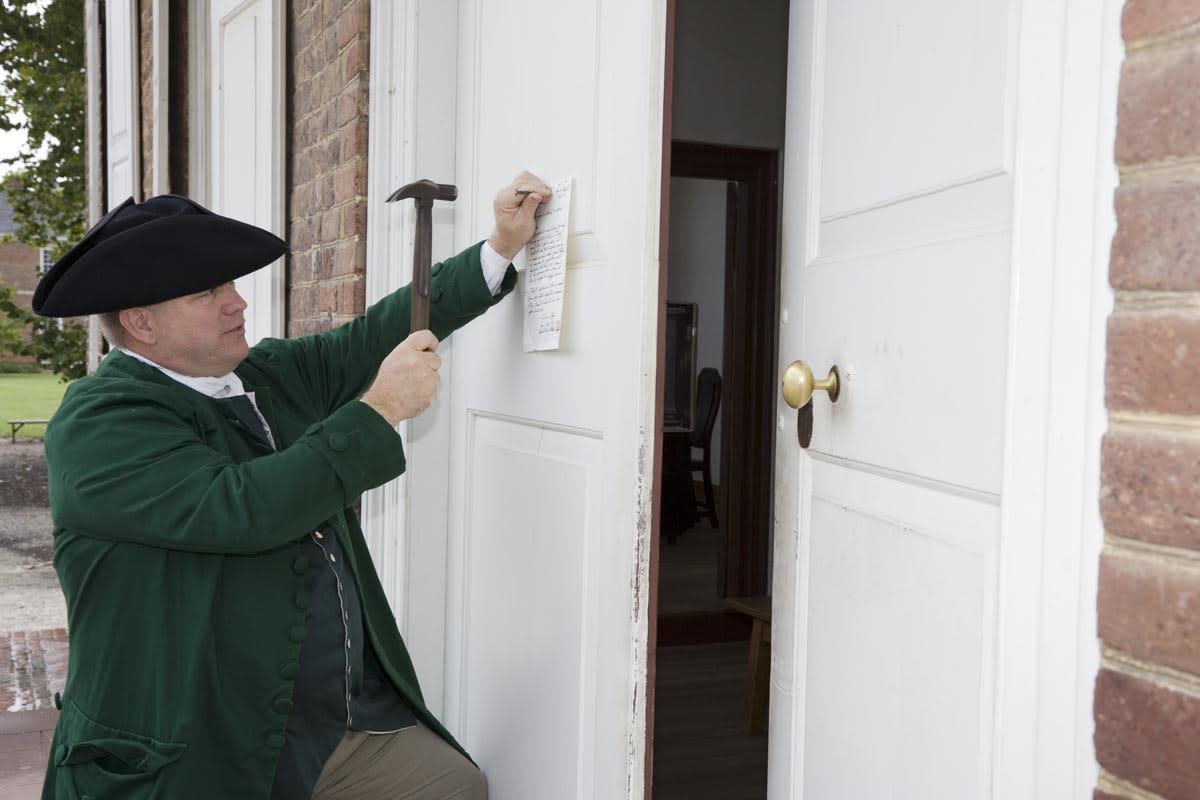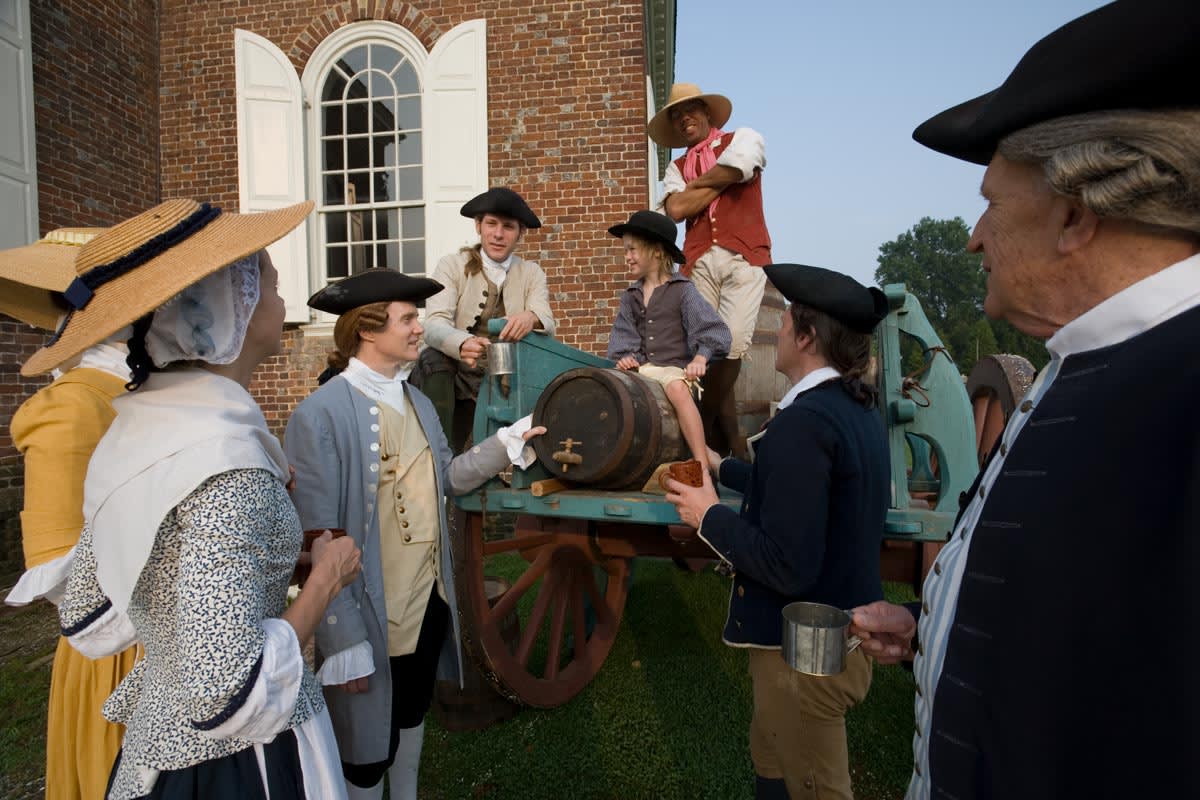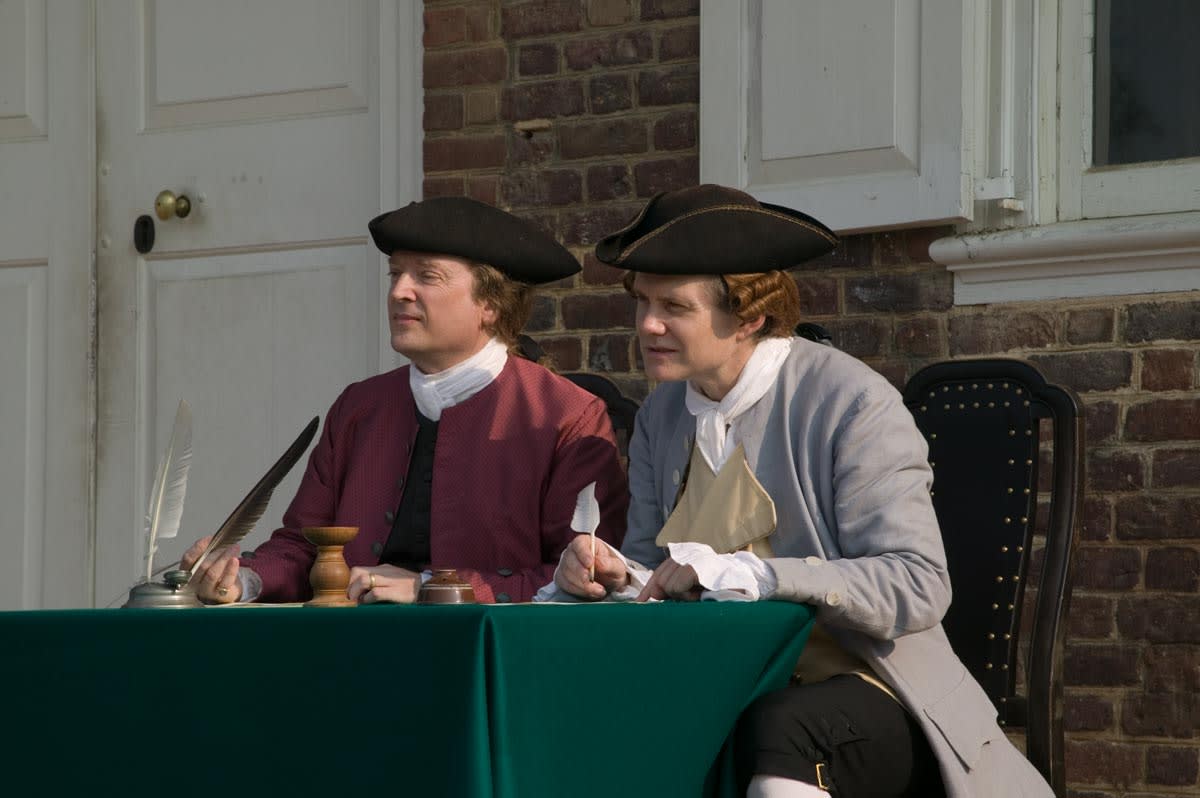In every major election year, my thoughts turn to Robert Munford’s play The Candidates; or, the Humours of a Virginia Election: A Comedy in Three Acts. This comic farce satirizing the county electioneering of pre-Revolutionary Virginia was written by a member of the Virginia gentry in the 1770s. Munford was a fourth-generation Virginian who was educated in England. Upon his return, he studied law here in Williamsburg with his second cousin Peyton Randolph. Munford held many county offices and was a member of the House of Burgesses (the lower house of Virginia’s legislature) from Mecklenburg County from 1765 to 1775. He knew his stuff when it came to elections.
The play centers on a county's election of two Burgesses. There were two types of Burgess elections in 18th-century Virginia, called elections and by-elections. Called elections were ordered by the governor either because there was a new king or a new governor, because the former assembly had been dissolved by the governor, or because the same assembly had sat for seven years. By-elections were held when a member of the House could no longer serve, for example, because he had taken on a government office, because of an irregular election, or because he had died. The election in the play is a called election upon the establishment of a new government after the death of Lord Botetourt.
An election was announced by writ, issued by the governor. The sheriff of each county chose the day of the election, which had to be at least twenty days after the date he received the writ.

Each county sent two Burgesses to the house, and each eligible voter had two votes to cast. So, who was eligible? In rural areas by the early 1770s legal voters were Protestant freeholders, white men (aged 21 or older) who had for at least a year held (by ownership or life-lease) 100 acres of unimproved land, or 25 acres of cultivated land with a house. A man could vote in every county in which he qualified as a freeholder. A wealthy landholder with widespread holdings could cast a lot of votes.
Likewise, a man could run for Burgess in any county in which he was a freeholder. Legally, he also had to be of age, and he couldn’t be a sheriff or tobacco inspector. Candidates usually self-declared after consulting the leading men in the county. A candidate was practically guaranteed defeat without their support.
Campaigning consisted of appearing at every important social event in the county, going regularly to church, visiting the leading planters, meeting with freeholders, and in general being seen in a convivial light as often as possible. To forward this, candidates or their friends often provided food or drink to the voters, a practice called treating. Legally, a candidate could engage in treating only before an election writ was issued or after the poll was closed, but the legality of a treat turned not only on the timing of the treat, but on who ordered or paid for the treat, if the candidate were aware of the treat, and whether votes were clearly solicited at the event. Needless to say, extra-legal treating was common. The second act of The Candidates takes place at a treat, and as the Prologue states: “Then strove the candidates to gain their seats/Most heartily, with drinking bouts, and treats.”

Finally, when election day arrived, the voting took place at the county courthouse. The sheriff opened the poll and determined how the vote would be taken. If there were more than two candidates, voters usually declared their votes aloud, in turn, and the clerk recorded them. Often the candidates in attendance would thank each voter for his vote as it was given. The sheriff also decided when to close the poll, and he declared the winner. Usually the candidates provided food and drink for the voters afterwards, and a good time was had by all.

Modern election practices are closely regulated by law. There are nearly endless regulations dealing with voter registration, campaign practices, acceptance of contributions, locations of polling places, and so forth. Yet we still recognize that all aspects of elections cannot be regulated and that candidates engage in practices many of us consider morally questionable. Campaign promises are snorted at by even the most gullible among us. Eighteenth-century Virginia legislators also recognized the importance of the election process, and they recognized, too, that human beings will venture into morally cloudy areas to be elected to office. Throughout the 17th and 18th centuries, the Assembly made laws that further regulated the election procedure, including eligibility of voters and candidates and campaign practices. Yet Munford’s play (written, remember, by a Burgess) makes it clear that Virginians looked upon election practices with suspicion and cynicism.
In Munford’s play, Mr. Worthy, a gentleman well-esteemed and of longstanding faithful service in the Assembly, and Mr. Wou'dbe, another notable but younger gentleman, have been the Burgesses for the county. When the election was called for, Mr. Worthy announced his retirement from public life. Unsuitable candidates (Sir John Toddy, Mr. Strutabout, and Mr. Smallhopes) declare themselves willing to take his place. Rumors fly, alliances shift, and even Mr. Wou'dbe's election is in doubt. But I won't tell you the whole plot. Suffice it to say that although 18th-century county elections were different in many ways from today’s, you will recognize enough similarities to appreciate the satire of Robert Munford's The Candidates.
“Henceforth, let those who pray for wholesome laws, And all well-wishers to their country's cause, Like us refuse a coxcomb--choose a man-- Then let our senate blunder if it can.”
—The final lines of Munford’s The Candidates, 1798
The Candidates was first published after the author’s death in A Collection of Plays and Poems, by the Late Col. Robert Munford, of Mecklenburg County, in the State of Virginia. Now First Published Together (Petersburg: William Prentis, 1798). The text of the play from this volume can be read here.
Dr. Cathy Hellier is a historian in CW’s Historical Research and Digital History department and a long-time member of the Foundation’s Evening Dance Ensemble.
Resources
Hubbell, Jay B., and Douglass Adair. "Robert Munford's "The Candidates"." The William and Mary Quarterly 5, no. 2 (1948): 217-57. https://www.jstor.org/stable/1917457.
Kolp, J. G. “Elections in Colonial Virginia.” August 31, 2012. In Encyclopedia Virginia. http://www.EncyclopediaVirginia.org/Elections_in_Colonial_Virginia.
Sydnor, Charles. Gentlemen Freeholders: Political Practices in Washington’s Virginia. Chapel Hill: University of North Carolina Press for the Omohundro Institute of Early American History and Culture, 2011.
Colonial Williamsburg is the largest living history museum in the world. Witness history brought to life on the charming streets of the colonial capital, plus, explore our newly expanded and updated Art Museums of Colonial Williamsburg featuring the nation’s premier folk art collection, plus the best in British and American fine and decorative arts from 1670–1840. Check out sales and special offers to plan your visit.
